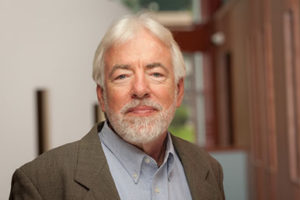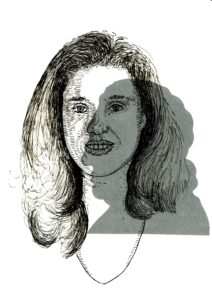Henry David Thoreau ~ On The Duty Of Civil Disobedience
Civil Disobedience is Thoreau’s primary essay on how to interact with Government. Here the author argues that a citizen must always uphold conscience over what is prescribed by law. Never one to accept the status quo, Thoreau says that if called, we must all disobey a system that is inherently prone to corruption and that even personal endangerment may be needed in order do what is right. An inspiration to luminaries such as Gandhi and Martin Luther King Jr., this essay is one of the core American writings on government.
Read or download the book: http://www.gutenberg.org/ebooks/71
Ivan Krastev ~ Na Europa
Ivan Krastev (1965), hoofd van het Centre for Liberal Strategies in Sofia en medeoprichter van de pan-Europese denktank European Council for Foreign Relations, analyseert in Na Europa de toekomst van het Europese project. Krastev bespreekt de huidige staat van Europa aan de hand van de vluchtelingencrisis en het populisme en concludeert dat Europa er behoorlijk slecht voor staat. Europa heeft zijn centrale plaats in de wereldpolitiek en het
vertrouwen van de Europeanen zelf verloren.
Europa spreekt minder aan dan ooit. Wat de Unie eerder bijeenhield, een gedeelde herinnering aan WO II, heeft inmiddels zijn kracht verloren. De geopolitieke reden voor Europese eenheid verdween met het uiteenvallen van de Sovjet-Unie. Ook de verzorgingsstaat, ooit de kern van de naoorlogse politieke consensus, staat sinds de opkomst van het kapitalisme in de 70er jaren ter discussie.
Maar ook de veranderende ideologie in de wereld speelt de EU parten: de Unie ziet niet wat anderen beweegt. Men dacht dat het Westen voor eeuwig de wereld kon transformeren en de rest van de wereld voor altijd het Westen zou nabootsen. De ambitie onze waarden en instituties te exporteren heeft geleid tot een hevige identiteitscrisis in het Westen, waarin het erfgoed van het christendom en de verlichting niet langer veilig is, aldus Krastev.
Brussel geloofde onvoorwaardelijk in zijn eigen politieke en sociale model en was onkritisch ten aanzien van de wereldgeschiedenis. Men dacht dat het nationalisme en de politieke theologie achter ons lagen, maar in China, India en Rusland en de islamitische wereld zien we ethisch nationalisme en religie als belangrijke krachten, aldus Krastev. ‘Europa onderscheidt zich weliswaar middels postmodernisme, postnationalisme, en secularisme maar dat betekent niet dat zij trendsetter is van de mondiale ontwikkelingen.’
Als we ons realiseren dat de vluchtelingencrisis het karakter van de democratische politiek op nationaal niveau ingrijpend heeft veranderd, dan kunnen we misschien het risico op desintegratie het hoofd bieden. Ze is de enige pan-Europese crisis die het politieke, economische en maatschappelijke model van Europa ter discussie stelt: de vluchtelingencrisis bleek het Europese 9/11 te zijn. Als reactie op de migratie zien we een populistische opstand tegen het establishment, en een rebellie van de kiezers tegen de meritocratische elites als die in Brussel. Read more
Oligarchy Is Destroying Our Society And The Planet
Is capitalism on the brink of joining the dustbin of history? And what would a post-capitalist society and a sustainable economy look like?
Since the onset of the Industrial Revolution, the world has experienced historically unprecedented levels of growth, with capitalism raising the standard of living of many nations. At the same time, capitalism has generated immense contradictions (exploitation of labor and nature, huge economic inequalities and gross social injustices), and these traditionally have been the main foci of radical political movements advancing the vision of a just socioeconomic order. But is the era of capitalist growth now coming to an end?
Renowned economist James Boyce, senior fellow at the Political Economy Research Institute at the University of Massachusetts, Amherst, offers critical insights on all of these questions, which should be food for thought for all progressives in the age of the revival of democratic socialism. Professor Boyce is the author of the forthcoming books Economics for People and the Planet: Inequality in the Era of Climate Change and The Case for Carbon Dividends.
C.J. Polychroniou: There are economists today who are arguing that the era of capitalist economic growth is over. Is capitalism, in your own view, on its deathbed, soon to join the dustbin of history like previous economic systems such as feudalism?
James Boyce: Your question really has two parts. One is about the future of capitalism, the other about the future of economic growth. The answers depend on what we mean by both of these terms, “capitalism” and “economic growth.”
Let me start with growth. Whenever we talk about this, we need to ask: Growth of what? Conventional economists use the term to mean growth of GDP, gross domestic product, the monetary value of all the goods and services produced in the economy that carry a price tag. Yet we know that GDP is a hodgepodge of things that are good, bad and useless. It not only includes good things, like food and housing and music, but also bad things, like the costs resulting from wars, prisons and environmental disasters. GDP also includes some useless things, like one-upmanship spending for what Thorstein Veblen called “conspicuous consumption,” the aim of which is merely to attain a higher position in the social pecking order, spending that does not add to a society’s well-being since one person’s gain is just another’s loss. The only thing that all the items counted in GDP have in common is that they carry a market price tag.
At the same time, GDP doesn’t count much that is very important to human well-being. It doesn’t count good things without a price tag, like the unpaid labor devoted to caring for children and the elderly, or ecosystem services, or any of the proverbial “best things in life that are free.” It doesn’t account for things that reduce our well-being like environmental degradation and violence. So, all in all, GDP is a deeply flawed measure of a society’s well-being. Preoccupation [with] how fast it grows is misplaced.
The same applies to “limits to growth,” a phrase popularized by some well-meaning environmentalists. Of course, there are limits to growth, if by this we mean the growth of bad things like pollution, natural resource depletion, imprisonment or violence. None of these can grow forever. The limits may be hard to identify with precision – what, for example, is the maximum percent of a nation’s population that can be put in jail? Three percent? Ten? Twenty-five? – but we know there is a limit. Read more
The Third Conference On The Political Future Of The Caribbean
3rd CONFERENCE ON THE POLITICAL FUTURE OF THE DUTCH-ADMINISTERED CARIBBEAN – RE-UNITING THE ANTILLES AND CARIBBEAN IN SOLIDARITY
The Third Conference on the Political Future of the Caribbean,
Having met at Bonaire, West Indies on 7th and 8th December 2018,
Aware that the political status of Bonaire, Sint Eustatius (Statia) and Saba was transformed in 2010 from being a part of the autonomous country of the (former) Netherlands Antilles to a new political arrangement unilaterally advanced by the Kingdom of the Netherlands akin to that of ‘partial integration’, and characterized by serious political and economic inequality, rather than the promised political and economic equality originally envisaged.
Also aware that this new status is tantamount to unilateral annexation, and is wholly inconsistent with the minimum standards of full self-government and equality required on the basis of international principles of democratic governance,
Noting that in 2010, Curaçao and Sint Maarten joined Aruba as the second and third semi-autonomous countries in the Kingdom without the full measure of self-government required under United Nations (U.N.) Resolution 1541 (XV), and subject to the applicability of Article 51 of the Kingdom Charter which provides for unilateral intervention in the affairs of the autonomous countries,
Read further: https://overseasreview.blogspot.com/2018/12/caribbean-experts-calls-for-regional.html
Paula Bermann ~ Deze ontspoorde wereld
 9 september 1943
9 september 1943
‘Mijn Inge, wat zal ze blij zijn, ach, konden we maar allemaal bij elkaar zijn. Maar we moeten dubbel voorzichtig zijn, want de wa-mannen voelen dat ze aan de verliezende hand zijn, en de Grüne Polizei zal harder optreden dan ooit. Hans blijft veel binnen. Hij kookt zelf, schrijft hij, en dat gaat hem goed af, hij studeert.
Sonja weet niet wat ze wil. Ze is vandaag bijzonder nerveus, ongeduldig. Ik begrijp dat en toch moet ik vaak streng zijn, en zij begrijpt dat niet. Haar opvattingen zijn veranderd, en ik ben en blijf een ouderwetse vrouw met te veel plichts- en eergevoel, kuisheidszin. Dat begrijpen de jongelui niet, ze leven in een ontspoorde wereld.’
Van 1940 tot 1944 houdt de Duits-Joodse Paula Bermann een dagboek bij. Een verslag van de eerste oorlogsjaren in Amsterdam en van de onderduikperiode later in Jutphaas.
Niet alleen de zorg over het lot van haar kinderen, Inge, Hans en Sonja, maken het dagboek beklemmend. Ook beschrijft zij de steeds ingrijpender gevolgen van de Duitse maatregelen om het Joodse deel van de bevolking te isoleren. Daarnaast staat ze stil bij die dubbele identiteit. Duitse voor de Nederlanders, Joodse voor de Duitsers.
Maar ook is het een heel persoonlijk dagboek. Paula Bermann klaagt over het sombere karakter van haar echtgenoot, moppert over het gedrag van haar kinderen en zij voelt zich vaak onbegrepen.
Tegelijkertijd is zij de moeder die ontroerend haar jongste dochter, Sonja, als een dromerig, leergierig meisje beschrijft, die trots is op haar zoon Hans die medicijnen studeert en die de opstandige Inge een pluim geeft voor haar moed.
Het verhaal van een moeder met opgroeiende kinderen in een ontspoorde wereld.
17 februari 1943
‘Ach, de kinderen, als ik die niet zou hebben. Wat verlang ik naar de dood. Ikzelf ben op alles voorbereid, geloof niet dat we de dans ontspringen als het nog lang duurt, maar de kinderen.’
Hoe verder je leest, hoe aangrijpender het dagboek. Al flakkert er zo nu en dan nog een vonkje hoop, de dodendans is niet te ontlopen.
19 maart 1944
De laatste woorden van het dagboek:
‘O hart, houd uit!’
Op 27 januari 1945 overlijdt Paula Bermann in Bergen Belsen.
Vandaag zien we de mistige contouren van een nieuwe ontsporing aan de horizon. De eerste wagons worden weer op de rails gezet.
Het dagboek van Paula Bermann is meer dan een getuigenis van een bittere periode uit onze geschiedenis, het is ook een waarschuwing. Een waarschuwing voor de gevolgen van een wereld die ontspoort.
Paula Bermann – Deze ontspoorde wereld.
Woord vooraf: Arnon Grunberg
Bezorgd door Elma Drayer
Vertaald door Johan H. Winkelman
320 pagina’s met illustraties
Euro 22,50
Paperback met flappen
ISBN 978 94 600 3879 2
E-book: ISBN 978946003917 1
Migration And Its Discontents: Israelis In Berlin And Homeland Politics
Introduction
Recent history has established Germany’s reputation as a new immigration country, facilitated by its economic boom and a relatively accommodating migration policy. An attractive destination for newcomers, Germany has surpassed many lands such as England and Canada which have long been recognized as immigration countries. Berlin in particular has drawn diverse populations of immigrants, including a considerable number of authors and artists whose works negotiate this relocation to the city. The gap between Germany’s notorious historical reputation for being hostile toward minority groups—embodied in the memories of World War II—and its attractiveness for expatriates has grown increasingly wider.
It is under these conditions that the growing community of Israelis living in Berlin has drawn attention from the German, Israeli, and global media. Israeli media and the publicist polemic have been preoccupied in recent years with the role of Israel’s living costs as a motivation for migration to Europe. In recent years, public protests in Israel have opted to shift public discussion away from its longtime focus on state security and onto the country’s increasingly high cost of living: Daily life necessities have “surpassed” the outside threat of anti-Semitic and anti-Israeli violence. In Israel, the perception of Germany as an attractive destination for emigrants elicits protests against the so-called opportunism of Israeli emigrants accused of “forgetting” the crimes committed by Germany during the Holocaust in favor of the satisfaction of mundane needs.[1] Former Israeli Minister of Finance, Yair Lapid, for example, has condemned the diffidence of Israelis who leave Israel because life is “easier in Berlin.”[2] According to Lapid, relocating in Berlin, the city which embodies historic insecurity for Jews, exemplifies the renouncement of national solidarity for the sake of economic comfort.
Berlin is characterized, often dismissively, as a “bubble” by Germans and foreigners alike—a desirable location for individuals belonging to minority groups or adhering to subaltern politics. My contention is that this cultural and imaginary construct functions as a microcosm allowing for the transmission of political identities to a new, foreign realm.
By examining recent literary representations which describe Berlin as a place of residence for Israelis, this essay argues that the description of Israeli migrants “escaping” their home country misses a crucial point: During their time in Berlin, Israelis do not simply abandon, but rather relocate Israeli politics to a new setting. This displacement dispels seminal expectations of Jewish diasporic life in Germany—both the Zionist discourse on European Jewish diaspora and Germany’s hegemonic memory culture. For one, the identification of the Israeli newcomers as “oriental” is at odds with an Israeli narrative of European Jews
returning to the continent after the trauma of the Holocaust. In the following readings of contemporary literary texts, I trace how sociopolitical conflicts salient to contemporary Israeli society—in particular, tensions between ethnic groups of Jewish Israelis—are negotiated through the act of travelling to Berlin or residing in the city. I follow how these conflicts are reformulated in a vocabulary pertaining to German memory culture and to German-Jewish encounters. Read more





